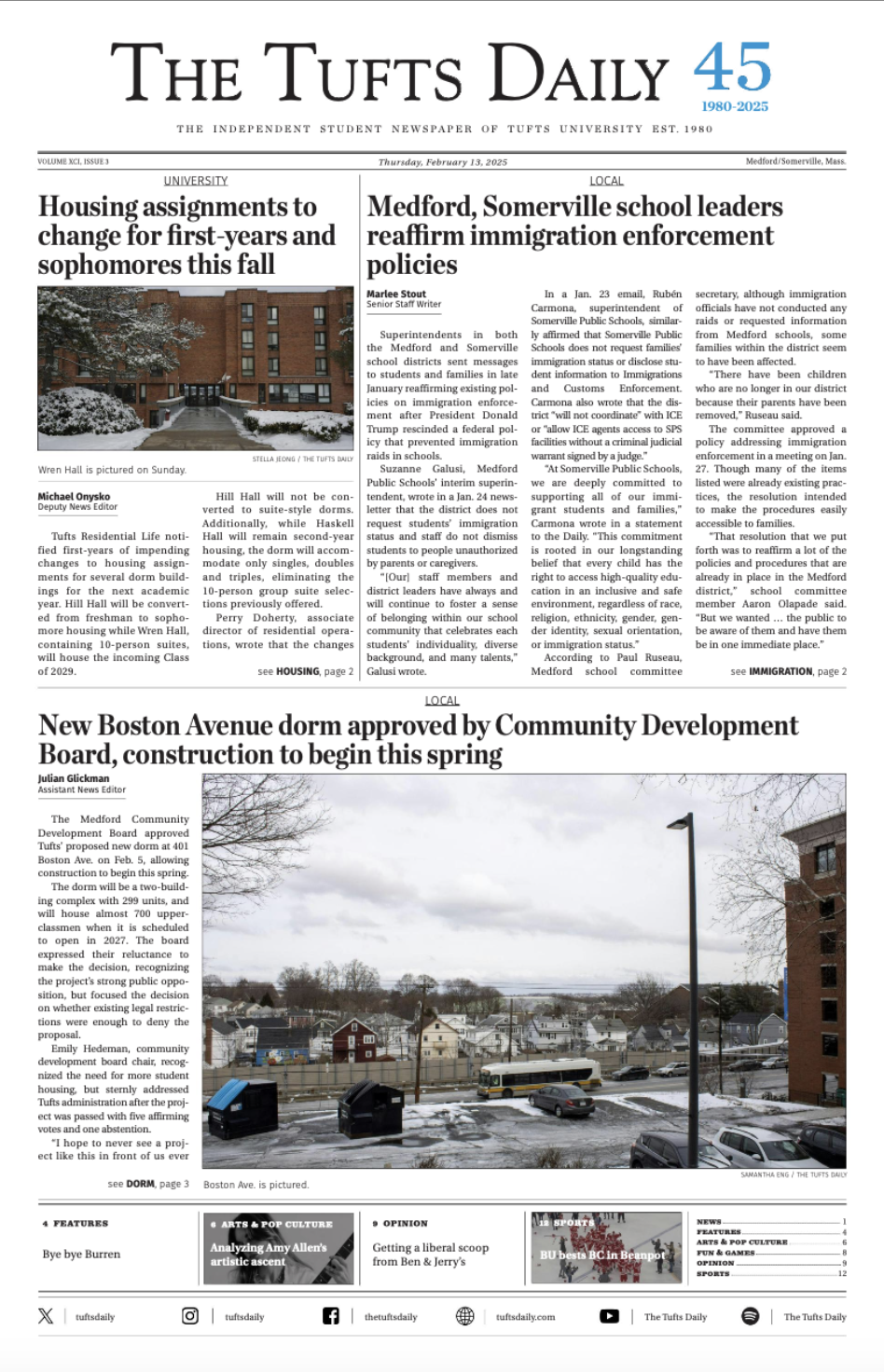Having spent over a decade living among Qatari culture, where dressing conservatively is the norm, arriving in the United States felt like a refreshing change. Here, freedom of speech, thought and expression seemed to flourish — at least in theory. Yet, beneath this veneer of progressivism, I encountered a troubling reality: In America many men believe it is their prerogative to judge women for their attire, readily resorting to shame those whose outfits they deem “too revealing.” This dynamic is particularly pronounced in colleges, where the exhilaration of newfound freedom and independence follows the sudden escape from constant parental supervision. On campus, many individuals feel as though they can wear whatever they want, free of oversight, and in this same environment, men seem to feel emboldened to voice their harmful opinions without fear of repercussions.
The root cause of this hypermasculine assertion, voiced at the detriment of women’s confidence, seems to stem from a deep-seated need for control over women’s bodies, though it is often masked as concern or protection. The so-called “freedom of expression” that we hope will allow us to embrace our bodies openly, is conditional — determined not by the choices of women, but by the comfort of men. Both in the media and in real-life relationships, the same insecurities that fuel the patriarchal norms are simply rebranded as chivalry or romanticized as possessiveness. What is protected as a right to liberty, in fact, allows men to feel entitled to speak on what women should or should not wear. The notion that a woman’s attire can “send the wrong message” or “invite attention from men” emphasizes how deeply entrenched the idea of women as public property truly is. Our bodies and choices are consistently policed by those who feel threatened by their autonomy.
On campuses where freedom is one of the cornerstones of the collegiate experience, freedom cannot remain selective. When men criticize women for showing too much skin, women feel they must always walk the tightrope between self-expression and social acceptance. We must begin to challenge these deeply ingrained societal norms, especially in the context of the unique atmosphere and experience that college offers. If not, clothing as a form of empowerment will be refashioned as narcissism or a thirst for attention when in reality, our bodies are our own and clothes are simply the garments we choose to put on them.
Men must unlearn what society has taught them — that a woman’s clothing choices are a reflection of their worth — and begin to recognize that true freedom lies in letting women exist without fear of judgment or reprisal. It is perfectly acceptable for her to wear whatever she pleases to the party. And no, she is not seeking your opinion on it.





